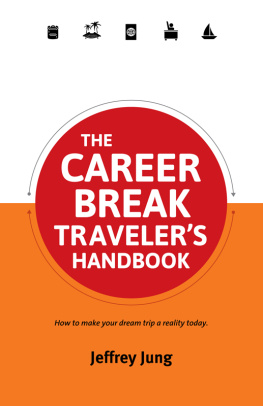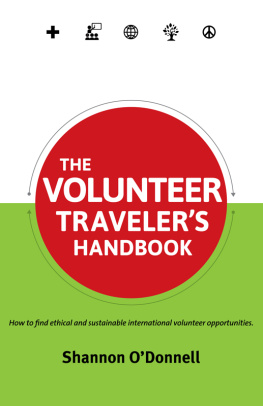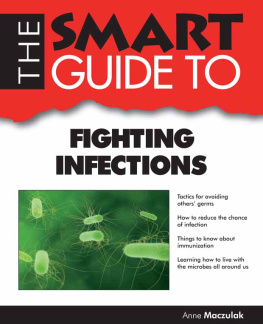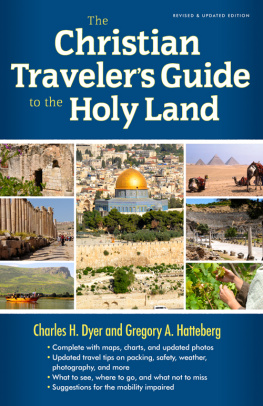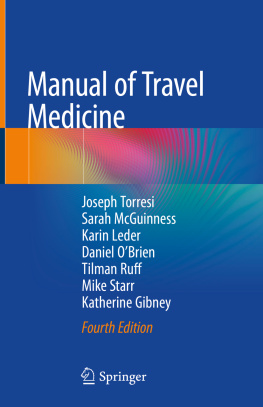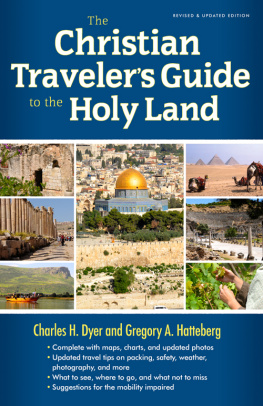The International Travelers Guide to Avoiding Infections
A JOHNS HOPKINS PRESS HEALTH BOOK
The International Travelers Guide to Avoiding Infections
Charles E. Davis, M.D.

Note to the reader: This book is not intended to
provide medical or legal advice. The services of
a competent professional should be obtained
whenever medical, legal, or other specific
advice is needed.
2012 The Johns Hopkins University Press
All rights reserved. Published 2012
Printed in the United States of America
on acid-free paper
9 8 7 6 5 4 3 2 1
The Johns Hopkins University Press
2715 North Charles Street
Baltimore, Maryland 21218-4363
www.press.jhu.edu
Library of Congress Cataloging-in-Publication Data
Davis, Charles E. (Charles Edward), 1934
The international travelers guide to avoiding
infections / Charles E. Davis.
p. cm. (A Johns Hopkins Press health book)
Includes bibliographical references and index.
ISBN -13: 978-1-4214-0379-3 (hardcover: alk. paper)
ISBN -13: 978-1-4214-0380-9 (pbk.: alk. paper)
ISBN -10: 1-4214-0379-x (hardcover: alk. paper)
ISBN -10: 1-4214-0380-3 (pbk.: alk. paper)
1. TravelHealth aspectsPopular works.
2. VaccinationPopular works. 3. Communicable
diseasesPreventionPopular works. I. Title.
RA 783.5. D 38 2012
613.68dc23 2011021316
A catalog record for this book is available from the British Library.
are by Jacqueline Schaffer.
All maps by Lucidity
Information Design, LLC.
Designed and typeset by
Amy Ruth Buchanan,
3rd sister design.
Special discounts are
available for bulk purchases
of this book. For more
information, please contact
Special Sales at 410-516-6936
or specialsales@press
.jhu.edu.
The Johns Hopkins
University Press uses
environmentally friendly
book materials, including
recycled text paper that
is composed of at least 30
percent post-consumer
waste, whenever possible.
Contents
Color illustrations follow page
Figures and Tables
Figures
Tables
Preface
Nearly 900 million people traveled internationally in 2009, almost half of them to a developing country. Depending on the destination, between 40 and 80 percent of travelers to a developing nation report a travel-related illness. Although many of these illnesses are mild and clear up on their own, some studies suggest that as many as one-quarter of travelers are ill when they return home and up to one-fifth are ill enough to seek health care during or after their trip. Even calculating conservatively, the figures reach the tens of millions. Furthermore, some of these infections are severe and can be life threatening. What they have in common is that nearly all of them are preventable if travelers obtain and follow good advice about getting immunizations, taking prophylactic drugs, observing dietary restrictions, and avoiding insect bites.
This book for world travelers is devoted exclusively to providing this information so that those traveling to developing regions can avoid, or greatly minimize, the risks of preventable infections. I would like to convince you to seek pre-travel advice, preferably from a travel clinic specialist, and to arm you with knowledge so you will have a good idea whether the advice you receive is accurate. Travelers must be their own advocates because the quality of travel advice varies greatly. This book prepares readers to find the best sources of travel advice, assess its quality, and ask appropriate questions. Take the book with you to your pre-travel consultation.
In addition to directing you to good sources of pre-travel advice and presenting detailed recommendations for pre-travel planning, the book includes information on prevention strategies tailored to the regions included in your planned travel. After reading these sections, you should be able to make the right decisions about which immunizations, prophylactic drugs, and safe food and water practices are appropriate and reasonable to guard your health during any particular trip. Because it also includes chapters about the most important travel-associated infections, the book offers travelers, as well as those who are merely curious about microbes and the diseases they cause, an opportunity to learn more about the fascinating fields of microbiology and infectious diseases.
I decided to write this book because the number of requests I received from friends and colleagues for advice before travel seemed to be increasing every year. During forty years of directing microbiology laboratories and seeing complicated tropical infections, I have observed numerous unfortunate consequences from the failure of travelers to obtain or follow proper advice. Some of these avoidable infections even occurred in family members of physicians whom one would expect to be well informed. Therefore, my goal is to provide easily understandable information about travelers infections in the hope that readers will be more likely to comply with preventive measures after they gain greater insight into the reasons for the instructions.
Take a look at just a few examples of the many preventable infections that travelers have acquired because they failed to obtain and follow adequate advice:
Australian travelers not vaccinated against typhoid fever were 11 times more likely to be diagnosed with this illness than were their vaccinated cohorts.
Of nearly 1,300 Americans who had imported malaria in 2008, 72 percent failed to take any anti-malarial drug, deviated from the recommended schedule, or took ineffective drugs.
Although the chance of acquiring travelers diarrhea, which affects up to 60 percent of visitors to developing nations, can be greatly reduced by careful hand washing and adherence to safe food and drink guidelines, as many as 80 percent of travelers fail to follow dietary restrictions.
Schistosomiasis, a potentially serious parasitic disease, is acquired only by exposure to freshwater, yet each year, forty of every thousand Americans who visit sub-Saharan Africa contract this disease.
How do we explain these statistics? A surprisingly small number of travelers seek the information necessary to avoid these illnesses and help ensure a safe and enjoyable trip. Only 35 to 50 percent of U.S. and European travelers seek pre-travel advice, and only 10 to 20 percent receive this advice from a travel clinic. Travelers from some other industrialized countries do a little better; for example, 68 percent of Canadian travelers are seen in travel clinics before departure. Even so, many travelers comply poorly with the advice they do receive. Only 50 to 60 percent fully follow the recommended malaria prophylaxis. Within a few days, more than 80 percent of travelers make errors in recommended safe food and water practices.
I see two issues here. The first is that an insufficient number of travelers seek pre-travel advice. The second is that some of the advice is presented either incorrectly or unclearly. Although the quality of travel advice varies widely, it is likely that appropriate recommendations are available at most travel clinics. Whether they are presented in an easily understandable format and whether the health care provider spends enough time explaining the reasons for them are more problematic.
Even though they are interested enough to consult a specialist, some travelers fail to take the specialists advice. Some of them have not received clear instructions, some dont want to submit to multiple immunizations, and some dont want to take anti-malarial drugs or use insect repellents. Some may find complying with
Next page

